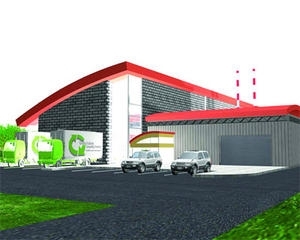A battery recycling factory with a facility to handle 4,000 metric tonnes of battery waste every year is being set up in Mesaieed Industrial City. The first phase of the facility is expected to be ready by January next year.
Announcing this on Sunday at a briefing at Sheraton Doha Hotel, the promoters said that the company is being established in line with the directives of the recent Basel convention where the importance of disposing of hazardous wastes was one of the main highlights of the discussions.
Qatar, one of the participants at the Basel Convention, has decided to embark upon the task of disposing of hazardous waste in such a way that it would be useful to the country’s industrial development in the long run, said a company official at the meeting. The company – Rassas Battery Recycling Factory, the first of its kind in Qatar – is aimed at helping to keep Qatar free from industrial waste and poisonous contaminants.
The initial work on the project started in November 2010 after appointing teams to study the project’s viability, feasibility and environmental effects. The promoters said the teams carried out intensive studies on the elimination of hazardous wastes. They said the production capacity of the factory is based on the current strength of the local market, which is close to 4,000 metric tonnes a year of used batteries.
Based on an expected annual growth of 5%, the figure could cross 10,000 metric tonnes a year in 2030, they said. The studies were based on information that the promoters received from the customs department, Qatar Chamber and Traffic department of the Ministry of the Interior (MoI). As per the current plans, the first phase of the factory includes acid neutralisation and battery recycling facilities. At the neutralisation stage sulphuric acid is removed until no traces are left.
At the battery recycling facility, batteries are crushed and treated to produce lead ingots. In the second phase, plastic recycling and pelletising lines will be established. The lead battery production line would have the capacity to meet the requirements of the local market and also to export to the neighbouring markets. Eventually, the production facility would manufacture 72,000 sets of different sizes every year. The project would cost about QR20mn in two phases on buildings, warehouses and recycling and production lines.
It is jointly financed by Qatar Development Bank and Qatar Islamic Bank. Local entrepreneur Sheikh Saud bin Nasser al-Thani is the chief executive while Sheikh Nawaf Ahmed Mubarak al-Thani is the deputy chief executive.
Gulf Times
July 4
























































